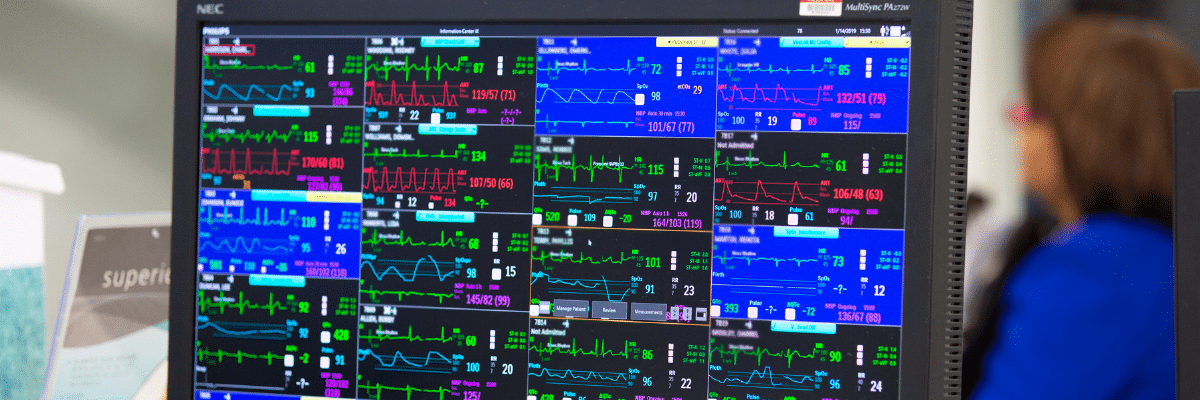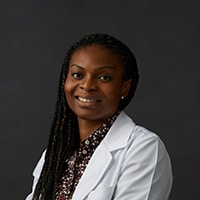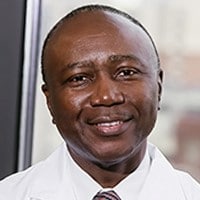General & Preventative Heart Care

Fighting Heart Disease
We prefer to help you avoid cardiovascular disease. But, if that’s not possible, we will help you enjoy an active lifestyle.
Grady’s preventive cardiologists are experts at helping people avoid cardiovascular disease through lifestyle changes and medical plans to reduce risk factors. But they can only help to prevent the disease before it strikes. Schedule an appointment to see our team if you have:
- A strong family history of heart attack, stroke, or peripheral artery disease.
- A personal history of cardiovascular disease, especially if you are under 60.
- Difficult-to-control risk factors for atherosclerosis, particularly cholesterol disorders.
- Controllable risk factors, including:
o High blood pressure
o High blood sugar or diabetes
o Obesity
o Smoking
o Unhealthy diets
o Sedentary lifestyles
Our cardiologists, cardiovascular nurses, and nutritionists can work with you to develop a medical plan to help you stay healthy.
However, if you already have cardiovascular disease, we can help you to live a longer, more active, satisfying life by managing your specific condition. Cardiovascular disease is what we call several different heart and vascular conditions, which include diseased blood vessels, structural problems, and blood clots.
Also known as high blood pressure, hypertension is a condition in which the force of the blood against the artery walls is too high. The condition often has no symptoms, but if it is untreated, it can cause potentially deadly health conditions, such as stroke. Hypertension can usually be controlled through a combination of eating healthier, reducing salt intake, exercising regularly, and taking medications.
Coronary Artery Disease affects the heart’s major blood vessels. Usually, it is caused by a buildup of plaque – a combination of cholesterol, white blood cells, calcium, and other substances – that causes the coronary arteries to narrow, restricting blood flow to the heart, which can lead to chest pain or heart attack. It can be managed with lifestyle changes, medications, angioplasty, and surgery.
Lipidemia is the presence of fat particles or lipids in the blood. A few lipids you may have heard about include cholesterol and triglycerides. These substances can deposit in blood vessels and restrict blood flow, increasing the risk of heart attack and stroke. The condition, which is not associated with symptoms, is diagnosed by routine blood tests. Treatment usually involves medication, a healthy diet, and exercise.
A blood clot is blood that has changed from a liquid to a gel-like or semisolid state. While clotting is normal, a clot gets dangerous when it forms in an artery or vein and does not dissolve on its own. If it travels to your heart and lungs, it can prevent blood flow. We treat clots with anti-coagulants, blood thinners that help prevent blood clots from forming.
Our Services
Grady’s Heart & Vascular Center treats all heart diseases, but our general cardiology team focuses on four conditions that are all too common in Georgia: hypertension, coronary artery disease, lipidemia, and blood clots.
Locations and Directions
-
Grady Memorial Hospital
80 Jesse Hill Jr Drive SE
Atlanta, GA 30303Heart & Vascular Center - 2nd Floor -
Asa G. Yancey Health Center
1247 Donald Lee Hollowell Pkwy NW
Atlanta, GA 30318 -
Camp Creek Comprehensive Care Center
3896 Princeton Lakes Way
Atlanta, GA 30331 -
Kirkwood Health Center
1863 Memorial Drive SE
Atlanta, GA 30317
Why Choose Us
Grady’s nationally-recognized cardiovascular team will help you live a long, rewarding life by providing you with the right medical care and guiding you toward a healthy routine. We help patients manage their cardiovascular disease. And, when necessary, we can perform surgical procedures to improve heart function, increase blood flow, or provide other relief. Grady’s experienced staff includes cardiologists, cardiothoracic surgeons, electrophysiologists, and other highly trained clinicians, including nurses and diagnostic specialists.
We are one of only a handful of U.S. hospitals staffed by multidisciplinary cardiovascular specialists from two medical schools, Emory and Morehouse schools of medicine. We use Atlanta’s newest medical technology to diagnose and care for patients. And, because Grady has one of the region’s most active cardiovascular research programs, we offer access to some of medicine’s most promising emerging therapies.
Because cardiovascular disease is often accompanied by other health concerns, Grady offers one more advantage: We’ve spent more than 125 years building the most comprehensive medical services in Atlanta, to deliver the best care possible.
Appointments and Referrals
Grady’s Heart & Vascular Center accepts new patients with referrals from either primary care providers or other specialists. Please ask your provider to use our patient referral checklist and email us the details. We will contact you to schedule an appointment.
If you are an existing Grady patient and have a MyChart account, visit MyChart or call our scheduling line at (404) 616-1000, to make an appointment.
Our Doctors
Every hospital treats patients. At Grady, we strive to treat them better, more efficiently, and more effectively. Our mission to care for all who need us attracts cardiovascular specialists from across the nation. They are drawn here by the knowledge that we test the limits of medicine by innovating existing standards of care, researching cutting-edge drugs and therapies, and exploring novel treatments.
Our zeal for innovation has given Grady a national reputation for medical advancement in areas like cardiovascular disease, cancer, burn, stroke, diabetes, infectious diseases, women’s health, sickle cell, and other conditions cared for by specialists in our centers of excellence. Access to all of these accredited practices is available to every Grady patient and our collegial environment means that specialists routinely help to care for their colleagues’ patients.
Cardiovascular Disease
Cardiovascular Disease
Cardiovascular Disease, Advanced Heart Failure and Transplant Cardiology
Cardiovascular Disease, Internal Medicine






